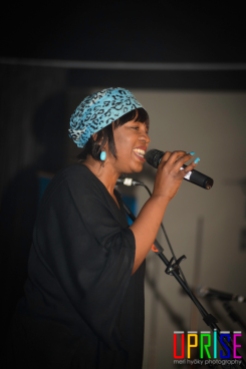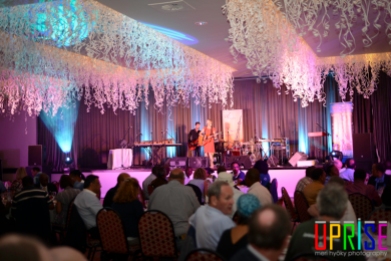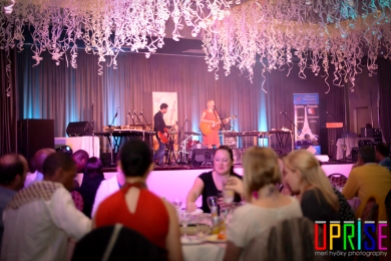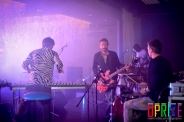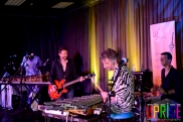Written by Lineo Segoete
Kouyaté-Neerman the Mali-French music duo made their way to Maseru this past Tuesday evening thanks to Alliance Francaise de Maseru and Maseru Sun. The Lesotho leg of Kouyaté-Neerman Africa Music tour was presented as a dinner concert where audiences were spoiled with a wonderful food buffet courtesy of the Maseru Sun Cabanas before being taken on a journey of note in what is best described as “a musical dialogue between two instruments that are distant cousins”: the balofon and the vibraphone.
As I arrived I nodded approvingly at the attendance. Although diverse, the audience present showed great potential in terms of mingling and networking, it consisted of an exceptional expat presence, locals with a flair for music, academics and artists. I could tell it would be great night.
The atmosphere in the venue was vibrant and relaxed, giving way to flowing conversations and laughter and anticipation for the performances of the night. That it was also a warm evening made the event that much more gratifying.
Local songstress Nthakoana set the show in motion with two graceful pieces that gave a decorous representation of a Mosotho’s interpretation of jazz and identity. Next was an extended pre-concert exclusive featuring singer Aprille Goodman from Tennessee who played a medley of jazz and the blues on acoustic guitar.
During her act, Aprille mentioned that before her year-long working assignment to The Mountain Kingdom she dwelt in dismay on the seemingly lengthy duration of her stay however, two months since her arrival she now feels that a year is simply too short.
Aprille had a few surprises in store for the audience, first by having Kouyaté-Neerman’s Antoine Simoni join her on bass guitar and then calling Nthakoana back on stage to do a number with her, an act of solidarity and creativity.
To add a bit of flavour, dynamic dancing duo Sina and Reatile gave an energetic rendition of the Salsa that was fuelled with charisma, chic and seduction.
At last, Lansiné Kouyaté, David Neerman and their band finally got on stage and set the Maseru Sun convention centre ablaze. The band’s ensemble enunciated an eternal fact that music is intrinsic to all cultures and transcends beyond words, time and even space.
For the next one and a half hours, the duo reconciled paradoxes of word, sound and feeling. Their interpretation of the balofon and vibraphone fused traditional and modern music adding a touch of experimentation that creates an eclectic sound revolution that is pleasant to one’s senses and soul.
I could tell that Kouyaté-Neerman’s music stems from joy and oneness, the chemistry they have on stage is electrifying as is the compatibility of their instruments. One can tell that more than music being a full-time career for them, it is also the thread that binds them together as brothers regardless of their ethnic backgrounds.
Following the show, I asked them about the tour and whether they had had any expectations prior to visiting Lesotho. They expressed that each new place is trial and error and they are happy so long as they play for a receptive audience. They showed interest at the prospect of playing in the scenic landscapes of the Mountain Kingdom yet again and playing for an even more dynamic audience. Needless to say their performance was memorable and will remain among the fondest memories for music and cultural enthusiasts within Lesotho.


